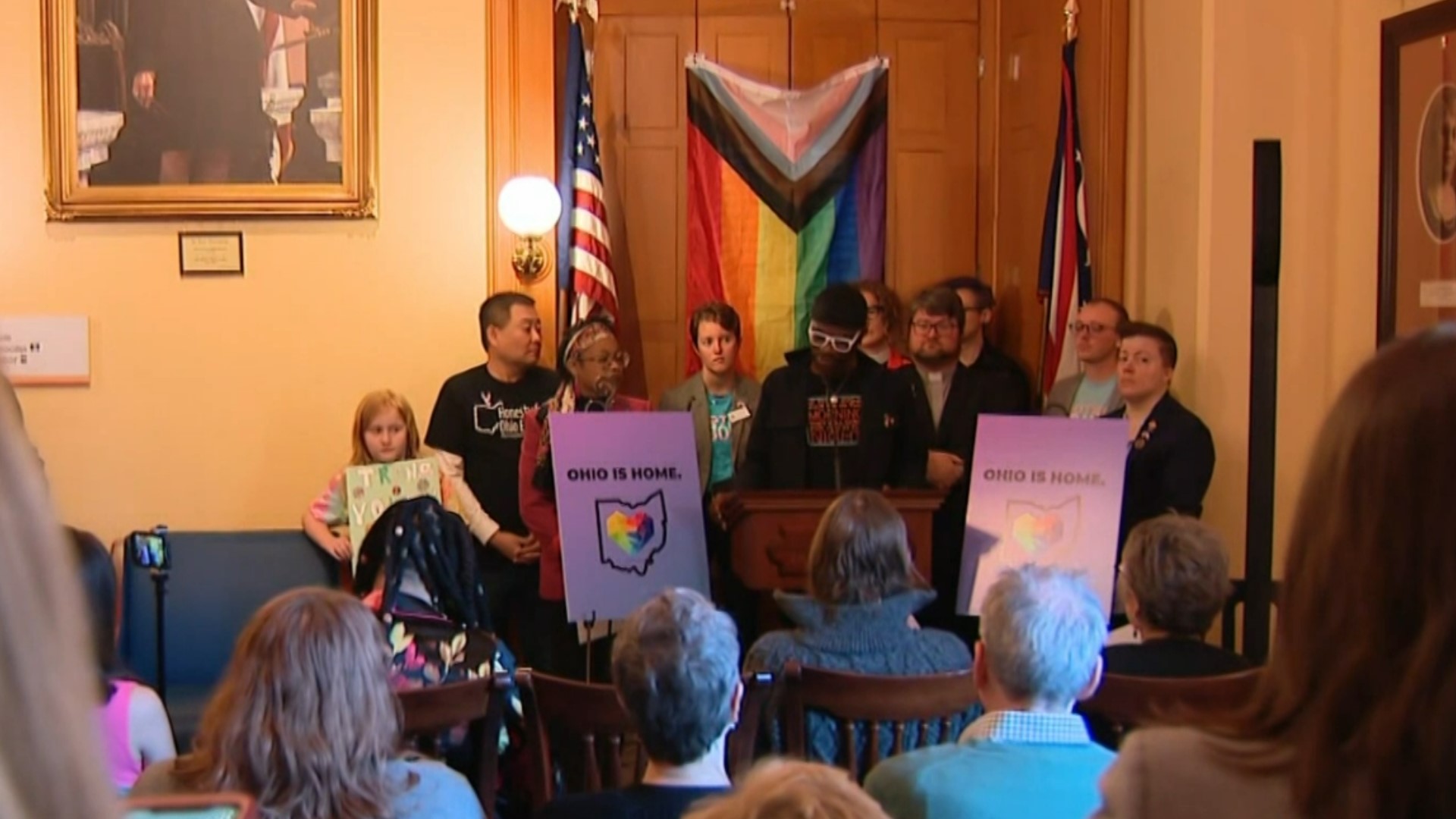COLUMBUS, Ohio — A Republican-backed proposal that would drastically affect how LGBTQ youth in Ohio live their everyday lives cleared the state Senate and House on Wednesday, despite adamant opposition from parents, medical providers and education professionals who call it cruel and potentially life-threatening.
State senators, by a vote of 24-8 approved a multifaceted bill that would ban gender-affirming care for minors and block transgender student-athletes from participating in girls and women's sports. A lone Republican, Sen. Nathan Manning of Northeast Ohio, joined Democrats in a “no” vote.
With a 61-27 vote, the Ohio House of Representatives passed the bill as well. It will now be sent to Gov. Mike DeWine’s desk for final approval.
DeWine has not said whether he will sign it. He previously had expressed doubts about the sports restrictions, saying such decisions were best made by individual sports organizations.
Under the legislation, minors in Ohio would be prohibited from taking puberty blockers and undergoing other hormone therapies or receiving gender reassignment surgery that would further align them with their gender identity.
An amendment added this week changes a provision that would have forced children receiving gender-affirming care to stop treatment or leave the state to obtain it. The latest version of the bill allows for any minor who is an Ohio resident currently receiving care to see that care through.
Since 2021, more than 20 states have enacted laws restricting or banning such treatments, despite the fact that they have been available in the United States for more than a decade and are endorsed by major medical associations. Most of these states face lawsuits, but courts have issued mixed rulings.
The nation’s first law, in Arkansas, was struck down by a federal judge who said the ban on care violated the due process rights of transgender youth and their families. Three other state courts have blocked enforcement while such legislation is currently allowed or set to go into effect soon in seven other states.
The proposal also would require public K-12 schools and universities to designate separate teams for male and female sexes, and would explicitly ban transgender girls and women from participating in girls and women's sports.
At least 20 states have passed some version of a ban on transgender athletes playing on K-12 and collegiate sports teams statewide. Those bans would be upended by a regulation proposed by President Joe Biden's administration that is set to be finalized early next year. The rule, announced in April, states that blanket bans violateTitle IX, the landmark federal gender-equity legislation enacted in 1972.
The proposal would make it more difficult for schools to ban, for example, a transgender girl in elementary school from playing on a girls basketball team. But it would also leave room for schools to develop policies that prohibit trans athletes from playing on more competitive teams if those policies are designed to ensure fairness or prevent sports-related injuries.
Supporters say Ohio's transgender care measure is about protecting children because they cannot provide “informed consent" for gender-affirming care and could be pushed into making choices that they regret later in life. They say banning transgender athletes from girls and women's sports maintains the integrity of those sports and ensures fairness.
Hundreds of opponents have testified against the bill, including medical and mental health providers, education professionals, faith leaders, parents of transgender children and transgender individuals themselves. They decry the legislation as cruel, life threatening to transgender youth and based on fearmongering rather than scientific fact.
Parents also say the bill obliterates their rights and ability to make informed health care decisions for their transgender children.
But Senate President Matt Huffman, a Lima Republican, said Wednesday that passing the law would be akin to backing measures that prevent parents from giving their children illicit drugs or physically abusing them.
“Certainly the parents are the most important decision-maker in a child’s life. But there are things where it’s important for the state to step in and protect the child,” Huffman said.
But Sen. Paula Hicks-Hudson, a Toledo Democrat, argued that the measure will only hurt transgender youth.
“We understand that our young people have so many different types of trials and trauma that they have to deal with. And unfortunately, this legislature is going to add an additional trauma to that," Hicks-Hudson said in a committee hearing earlier Wednesday.

